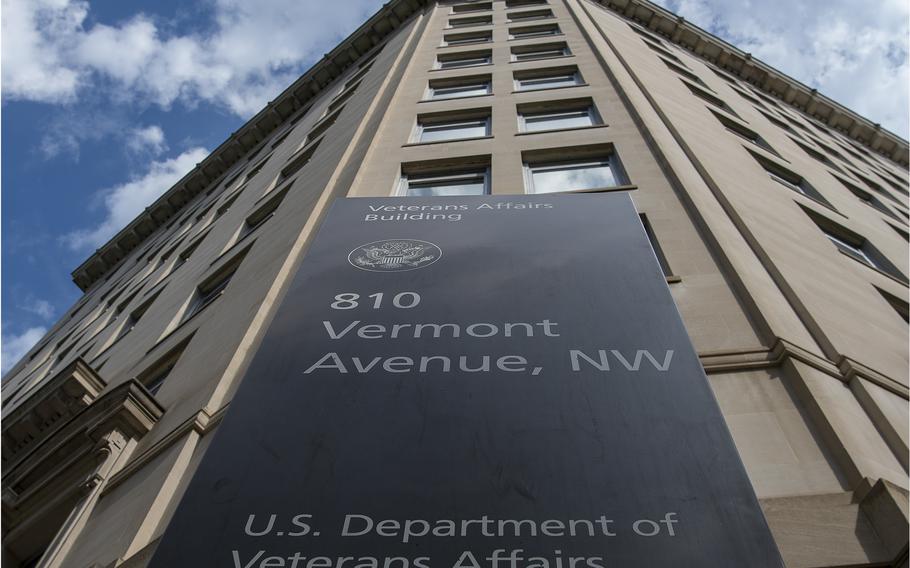
The Department of Veterans Affairs headquarters as seen in Washington, D.C., on July 6, 2022. (Carlos Bongioanni/Stars and Stripes)
WASHINGTON — The Department of Veterans Affairs has indicated it will follow the lead of the Defense Department and change its fertility assistance policy to include unmarried veterans and same-sex couples.
The expected changes, noted in a letter filed last week in a federal lawsuit, would open in vitro fertilization, or IVF, treatments to veterans who are single or in a same-sex couple by allowing donor eggs or sperm to be used in the procedure.
The scrapping of the marriage requirement would also allow opposite-sex couples who are unmarried to access IVF.
A group of veterans and a female Air Force veteran who is married to a woman sued the VA in August 2023 over its restrictions on IVF treatments, which currently limit patients to married couples who can provide their own eggs and sperm.
The lawsuit also targeted the Defense Department, which said in a court filing last month that it was in the process of changing its Tricare health coverage of IVF to be more inclusive.
The Pentagon’s amended policy is set to be finalized by the end of February, according to the letter filed last week in the U.S. District Court for the Southern District of New York.
“VA has determined that it will also amend its IVF policy to align the coverage it provides with that available under the forthcoming amended DOD policy,” the document states.
The VA would not comment on ongoing litigation but said the “legal authority governing VA makes DOD’s policy change relevant to VA’s policy,” according to Terrence Hayes, the VA’s press secretary. “To fulfill VA’s commitment to aiding veterans in starting families, VA will continue to review potential changes to our policy, taking into account any changes to DOD’s policy.”
IVF is considered the most effective form of reproductive assistance but it can be cost-prohibitive without health insurance coverage.
The VA and the Pentagon make the procedure available to service members and veterans who demonstrate their struggles to have a child are connected to a service-connected disability. That requirement remains a point of contention in the lawsuit.
The New York City chapter of the National Organization for Women, or NOW-NYC, which is suing the VA and Pentagon on behalf of troops and veterans, has argued the required documentation of service-related health issues unlawfully excludes women whose infertility could be caused by unrecognized medical conditions.
Research shows infertility among service members and veterans is higher than in the general population partly because frequent moves and the demands of service force troops to delay parenthood.
Lawmakers in recent years have pushed to expand coverage of fertility assistance within the military community. Sen. Tammy Duckworth, D-Ill., a member of the Senate Armed Services Committee, said she welcomed news of the upcoming changes to the Pentagon’s policy.
“Because of IVF, I was able to start my family and am a mom to two beautiful girls,” said Duckworth, an Army veteran of the Iraq War. “I’m glad the DOD is making these changes and doing right by our service members experiencing infertility who are seeking to start or grow their families.”